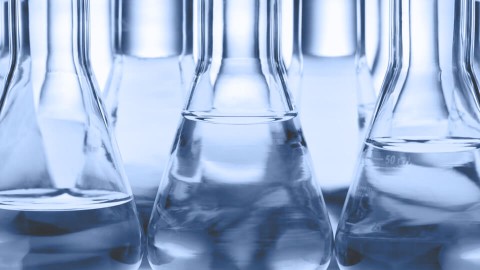VINNAPAS® EP 724

VINNAPAS® EP 724 has a Tg of about +19°C which is the highest among VINNAPAS® EP product line. It has a very high cohesive strength (heat resistance) and tensile strength. The dried film from VINNAPAS® EP 724 is more flexible than PVAc polymer while still maintaining good tensile strength and high creep resistance. Its dried film has a low-level of tack.
Properties
- Permanently flexible adhesive joints
- High cohesion
Data sheets
Properties
VINNAPAS® EP 724 is compatible with both fully and partially hydrolyzed polyvinyl alcohols and will show no separation when formulated with any polyvinyl alcohol type. It has low viscosity thickening with plasticizers / solvents.
Application
VINNAPAS® EP 724 offers several advantages in conventional PVAc applications as well as wood adhesives. A blend of VINNAPAS® EP 724 with PVAc dispersions provides better initial bonding strength, faster setting speed and higher water resistance. VINNAPAS® EP 724 can be used as VAE dispersion for EPI wood glue application. It meets the requirement of D1 and D2-Standard of European EN204 wood glues by blending with fully hydrolyzed polyvinyl alcohol.
Typical application fields of VINNAPAS® EP 724 are as follows:
- Paper lamination and paper tubes
- High temperature heat sealing applications
- EPI wood glue system
- Low viscosity wood glues
Due to its high cohesive strength, VINNAPAS® EP 724 can be also usable in packaging applications where a high heat resistance is needed.
If the product is used in applications other than those mentioned, the choice, processing and use of the product is the sole responsibility of the purchaser. All legal and other regulations must be complied with.
For questions concerning food contact status according the chapter 21 CFR (US FDA) and German BfR, please feel free to contact us.
Wacker Chemie AGGisela-Stein-Strasse 1
81671 Munich
Germany
Packaging
- 200 Kg Steel drum
- 220 Kg Steel drum
- 1 MT IBC
- 1.1 MT IBC
- 1 MT Returnable tote
- Flexi bag.
- Tank lorry
Storage
When the dispersion is stored in tanks, proper storage conditions must be maintained. The product has a shelf life of 9 months starting from the date of manufacture if stored in the original, unopened containers at temperatures between 5 and 30°C. Any longer periods for the maximum storage period that may be described in the Certificate of Analysis which accompanies each shipment of the product, take preference over this suggestion in which case the time period stated in the Certificate of Analysis shall be solely authoritative. Iron or galvanized-iron equipment and containers are not recommended because the dispersion is slightly acidic. Corrosion may result in discoloration of the dispersion or its blends when further processed. Therefore, the use of containers and equipment made of ceramics, rubberized or enameled materials, appropriately finished stainless steel, or plastic (e.g. rigid PVC, polyethylene or polyester resin) is recommended. As polymer dispersions may tend to superficial film formation, skins or lumps may form during storage or transportation. Filtration is therefore recommended prior to utilization of the product.
Preservation for Transport, Storage and further Processing
The product is adequately preserved during transportation and storage if kept in the original, unopened containers. However, if it is transferred to storage tanks, the dispersion should be protected against microbial attack by adding a suitable preservative package. Measures should also be taken to ensure cleanliness of the tanks and pipes. In unstirred tanks, a layer of preservative-containing water should be sprayed onto the surface of the dispersion to prevent the formation of unwanted skin and possible attack by microorganisms. The thickness of this water layer should be < 5 mm for low viscosity dispersions and up to 10-20 mm for high viscosity products. Proper procedures - periodic tank cleaning and sanitization - must be set up in order to prevent microbial attack. Contact your biocide representative/supplier for further plant hygiene recommendations. Measures should be taken to ensure that only clean air enters the tank when the dispersion is removed. Finished products manufactured from polymer dispersions usually also require preservation. The type and scope of preservation will depend on the raw materials used and the anticipated sources of contamination. The compatibility with other components and the efficacy of the preservative should always be tested in the respective formulation. Preservative manufacturers will be able to advise you about the type and dosage of preservative required. If the product is stored for a longer period, stirring is recomended before use.
Sales and support
Allentown, PA 18106-9346
United States
+1 517 264-4088 (Fax)
How can we help you?
- Do you need help in choosing a product or do you require technical support? If so, please contact our experts.


